The Cove Movie interview
 Ric O’ Barry spent ten years of his life helping to build up the dolphin entertainment industry, most notably capturing and training the aquatic stars of 60’s TV show Flipper. His tired eyes and weary demeanour are testament to the 35 years he has spent trying to tear that same industry down.
Ric O’ Barry spent ten years of his life helping to build up the dolphin entertainment industry, most notably capturing and training the aquatic stars of 60’s TV show Flipper. His tired eyes and weary demeanour are testament to the 35 years he has spent trying to tear that same industry down.
When Cathy, his favourite Flipper dolphin, died in his arms a few days before Earth Day in 1970, O’Barry realised his mistake and dedicated his life to freeing captive dolphins. A few days later he was busted attempting his first rescue in the Bahamas and spent a week in jail (the dolphin inconveniently refused to leave his pen and swim to freedom).
Since then O’Barry has campaigned tirelessly against captures and slaughters, resulting in heavy-duty legal battles and vitriol from the dolphin industry (according to the Miami New Times the president of the Marine Mammal Conservancy in Key Largo called him “a liar and a malcontent”).
Now his central role in multi award-winning documentary The Cove has further cemented his reputation as a hero for those who care about dolphins, and a villain for those who capture them.
The movie, directed on a $2.5m budget in 2007 by National Geographic photographer Louie Psihoyos (who took a three-day crash course in filmmaking before embarking on the project), starts by following O’Barry around the tiny fishing town of Taiji in Japan, where he spends six months a year trying to expose the brutal slaughters of thousands of dolphins and pilot whales. A covert Oceans 11 style operation using high-tech equipment sees the crew thwart the Japanese fishermen’s attempts to keep their inhumane killing hidden from the world, and captures graphic images that will rob you of sleep.

The footage includes Rasta’s Surfers for Cetaceans group holding a memorial ceremony in the blood-stained water, only to be bullied out by angry fishermen attacking them with poles (see more footage here: http://www.youtube.com/watch?v=N-Pfk0XFSfQ).
As tips for Oscar glory are touted around Hollywood gossip sites, Drift speaks to O’Barry about the issues behind the movie.
Who are the biggest villains behind the Taiji slaughters?
In some ways, the fishermen in Taiji know not what they do.
They don’t think that there’s anything special about dolphins, so they just don’t get it. Part of the reason for that is the Japanese language character for whale translates into ‘monster fish’, so they just think they’re killing fish. Then there are all those trainers in wetsuits, some of them westerners. They’re helping the fishermen slaughter these dolphins, by buying the prettiest ones for a high price before the rest are killed [live dolphins fetch up to $150,000, dead ones around $6000]. The trainers, they know. They give dolphins names, they look them in the eye every day and they feed them, so they’re far more despicable. It’s an industry of hypocrites, that’s why I left. You have to be a professional liar: you lie to the journalists, you lie to the public and you lie to yourself.

Some people have labelled this movie a redemption for your early involvement in dolphin captures. Do you feel guilty for contributing to the industry in your Flipper days?
I used to, not anymore. I was motivated by guilt when I first started doing this, but that was the 1970’s. Now I don’t think about any of that, you’ve just got to do what you’ve got to do. But had I not had that experience this movie would not have got made, so it all makes sense now.
In the movie Joji Morishita of Japan’s Fisheries Agency claims he has never had any convincing reason why the dolphin is so special. How would you respond to that?
He’s wrong about that. I’ve never heard of another animal coming out of the jungle and saving a human. That’s altruism and that’s associated with human beings. That’s special. We don’t understand it but it is something special. [In the movie Rasta recounts his experience of being saved from a tiger shark attack by a dolphin just days after setting up S4C].
Is there a danger that the movie is preaching to the converted, and that the people who are seeing it aren’t really going to be the ones buying tickets to Seaworld in the first place?
I think most people who are interested in dolphins are going to go and see the movie, and then they’re going to think twice before they buy a ticket to see a performing dolphin show. The most important thing for people to do, relative to the captivity issue, is don’t buy a ticket. Something that simple could stop the Taiji captures, because it’s all about supply and demand.
With all the money that changes hands for live dolphins, will the captures not just continue elsewhere?
To be perfectly realistic I don’t see that industry shutting down any more than zoos. There are so many dolphins now that are actually born inside of a building and spend their lives inside a concrete swimming pool. They don’t know what the tide is, they’ve never seen live fish - they don’t even know what a live fish is. They don’t know what the sky is, they think the roof is the sky. These are the freaks we’ve created for our amusement.
The real solution is to stop all of the captures, then administer birth control to stop them breeding in captivity. In a perfect world those dolphins would then be taken out of those buildings, and placed into a natural sea enclosure where they could live out their lives. But that’s not going to happen, there’s too much money in it. There’s $2bn a year in the USA alone.

But in theory if enough people did stop buying tickets, could the industry die out?
It’s a multi-billion dollar supply and demand industry, so you need to educate a lot of consumers so they don’t buy the tickets. The [dolphin entertainment] industry is going to be beside itself when this movie comes out, because it’s going to hurt their numbers. Every action has a reaction, and there’s going to be a reaction to this movie. The industry will fight back somehow. It’s predictable because that’s what they always do. They’ll hire a PR firm and the Alliance of Marine Parks, and defend what they do. That’s coming.
Environmental groups have been campaigning to get Taiji shut down since 1997. Why has nothing changed?
There has never been an effective, sustained campaign to shut this down, that’s been the problem. There is one now though, and the Achilles heel we’re aiming for is the mercury contamination issue.
Historically, everyone working on this issue has gone to Taiji, taken a bunch of graphic pictures, uploaded them on their website, and said, “Boycott Japan! Send a letter to the president of Japan! And send us money!” That’s why it’s failed so far.
Everyone’s attacked the fishermen and Japanese government on food culture issues or cruelty issues, but they love that argument - they can win that one. They can keep that argument going forever and ever. That’s why they put dolphin meat in the school lunch programme, because they wanted to keep the food culture argument alive. Then they can say, “This is our culture, you don’t understand us.”

With the mercury poisoning argument, we can say, “We’ve just tested this meat. It’s poisonous.” You can’t argue with scientific results. A couple of city councillors actually tested the meat themselves and said, “Yes, you’re right”. They took it out of the school lunch programme because they don’t want to poison their own children, yet they continue to sell it out the back door to their neighbours. That’s scandalous, and when the truth gets out in Japan, people will simply not buy the meat. That’s how this is going to be won, not on food culture issues. And it will work.
The movie mentions the importance of the Japanese people seeing The Cove, but also highlights that there are few environmental groups, and a culture of not wanting to stand up and rock the boat. Would they do anything about it anyway?
It doesn’t necessarily take environmental groups to fix a problem, the power lies with ordinary consumers. Dolphin and whale meat is based on supply and demand. Only 1% of Japanese people eat whale meat, and an even smaller percentage would willingly eat dolphin. Consumers don’t realise that much of the whale meat they are buying in places like Tokyo is counterfeit, and that it’s toxic dolphin meat – they have no idea. The Japanese people are much more concerned about clean food than we are, they’re really finicky about it. When this movie gets out in front of them and they know the truth, they just wouldn’t buy that meat anymore.
The Japanese fishermen and officials argue that Western protesters are racist because of the calls for boycotts. Are they right?
How can you boycott [the Japanese people]? They don’t even know about it. Most people in Taiji are very gentle, respectful people and they’re not involved in the slaughter. It’s just a very small minority of people, and what I’m trying to do is separate them out from the rest of Japanese society. Japanese society is being boycotted for something they’re not responsible for, and yes, that’s a form of racism. Boycotting Japan is a block indictment of all Japanese people as guilty, and they don’t even know what’s going on. That’s not the solution. The solution is to work with the Japanese people, not against them.
Do you believe the movie can permanently shut down the Taiji slaughters?
Oh, I know it will. This film is powerful enough to shut down this cove and take out whaling at the same time. There’s no way the Japanese people are going to buy that meat once they know the truth. A Japanese version of The Cove is being made with Japanese voices rather than subtitles, and that will get out in front of the Japanese people somehow – even if we have to put it out on the internet to get past the censors - and there’ll be a reaction to that.
When you return to Taiji will the locals be aware of the movie?
The fishermen won’t know, it’s an isolated coastal town. The police might know through the government, but I doubt they’ve seen the whole thing. Every screening gets a standing ovation and wins the audience award at film festivals, so the Japanese embassies will have seen it and no doubt passed on the information.
What will your ‘welcome’ be when you return?
I just don’t know what’s going to happen. It’s at the point now where I wear disguises – I’ve got wigs, I’ve got dresses, I drive through Taiji in my car wearing a mask and dark glasses or dressed like a woman. I don’t look too good in a dress though.
I worry the most about the Yakusa (the Japanese mafia), or a drunken fisherman doing something stupid. I’m working on getting some high profile celebrities out there to get the Japanese media on site. If I get arrested then at least I’m not alone…getting arrested when no one knows about it would be really dangerous.
One of the problems they have is that I have a very high profile in Japan, so if they arrest me it’s almost like arresting Flipper. They have to get it right when they finally arrest me, they have to figure out what the charge is, though it’ll probably be bogus.

Now this movie is out and the world will be aware of what happens in Taiji, is there any point in groups like Surfers for Cetaceans going out there and taking action?
Sure, the more people who show up the better. Dave Rastovich was very helpful, those surfers got the issue worldwide exposure. When they got out of the water we had to get them away in fifteen minutes because the police would arrive in twenty. Now they’ve all got arrest warrants out for them in Japan and can’t come back and do anything else, but the exposure was great. That’s exactly what the fishermen don’t want there. They don’t want this kind of exposure, because they’ve said to me that if the world finds out what’s happening there, they’ll get shut down. Well, now the world is finding out.
If anyone was going to go out to Taiji to protest, what would your advice be?
It’s hard for me to say because I don’t even know what to do myself. I just have to go out there and figure it out. It’s hard to tell other people what to do because I don’t want to get them in trouble or get them arrested or get killed. The Japanese mafia are involved in the fishing industry so I’d tell people to be very careful if they go over there.
How else can people protest?
Get to the IWC conference when it’s next held and protest there. The IWC will go down in history as a ship of fools, they’re totally dysfunctional. Every year everybody goes to some exotic location, and everybody behaves themselves, and then nothing happens, and they do the same thing all over again the next year.
To them it’s all about 1000 whales in the Southern Ocean. I’m trying to draw their attention to the 23,000 small whales they’re not talking about at all. Dolphins are small whales. Every cetacean in that cove was suffering. Size doesn’t matter.
Some countries at the IWC are making a lot of anti-whaling noise, are they actually making any difference?
Australia and America are not doing enough. Their position is “We’re opposed to whaling,” but they’re not really. They sell a lot of beef to Japan and want to keep that going. The Australians should have their navy in the Southern Ocean saying, “You can’t do this, it’s illegal. We’re confiscating your ship.” But they don’t. If you’re so concerned, why don’t you arrest them? What part of the word ‘sanctuary’ don’t you understand?
Talking about food supplies, another issue The Cove touches on is the depletion of fish stocks. How is that affecting the Taiji slaughters?
Over-fishing is a worldwide issue, but in Japan they have seriously depleted their resources. So now they blame the dolphins, who have been fishing sustainably for their food for 55 million years. The problem is drift nets that are 65 miles long. The Japanese eat fish three times a day, and there’s just no way to sustain that. They need to look in the mirror if they want the answer to that problem.

You’re receiving standing ovations at every screening and people are holding you and the film crew up as heroes. How does that kind of attention make you feel?
I don’t like it. That’s the only part of it that makes me uncomfortable. I’ve been in documentaries and given talks all over the world for the last 40 years, and I don’t feel uncomfortable at all. This movie is different, I think because it sets me up as some kind of a Greek god or something. I’m just doing my job.
What are your next steps in regards to Taiji?
I’m going to get back out there as soon as I can. I could walk out of here right now and get a Swiss investor and open up my own politically-correct dolphin swim programme and healing centre in the Bahamas, and make $4 - $5 million a year. I could do that if I wanted to. But I wouldn’t be able to sleep at night. So instead I go to Taiji…where I can’t sleep at night!
Visit www.savejapandolphins.org for more information on the Taiji campaign and find out how to help.
View The Cove trailer and find a screening: www.thecovemovie.com
Support Surfers for Cetaceans:
www.surfersforcetaceans.com
Thanks to the Galway Film Fleadh: www.galwayfilmfleadh.com
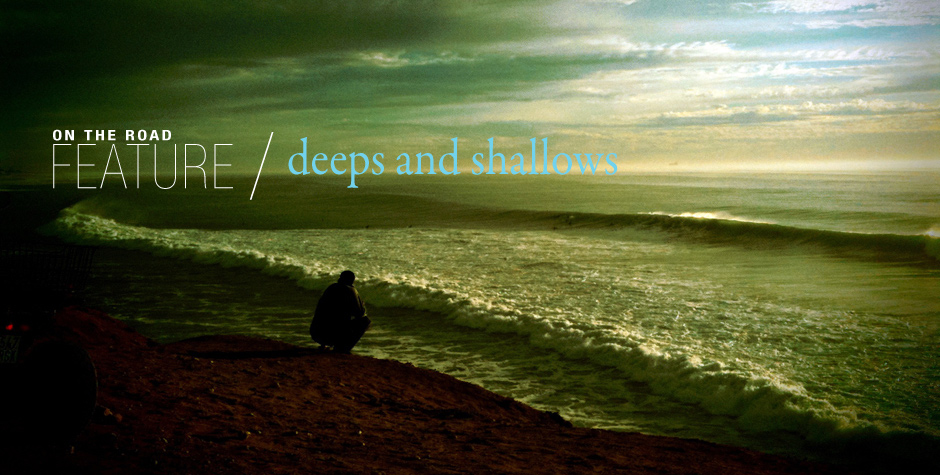
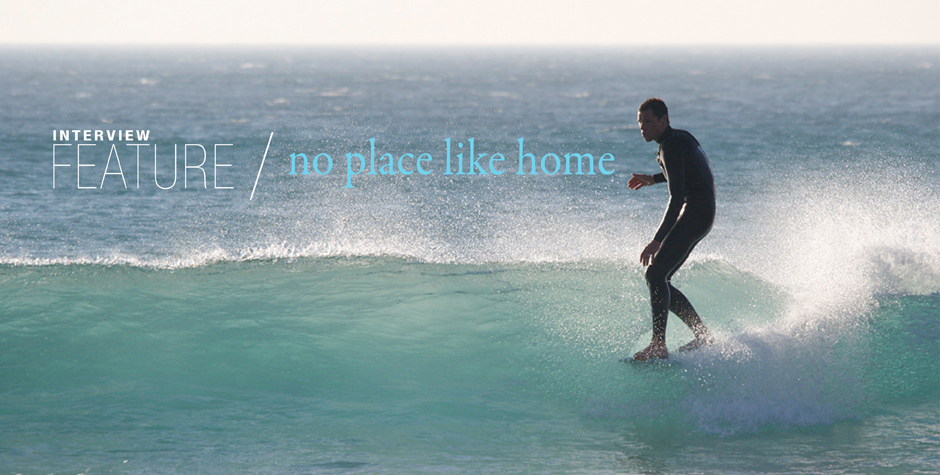
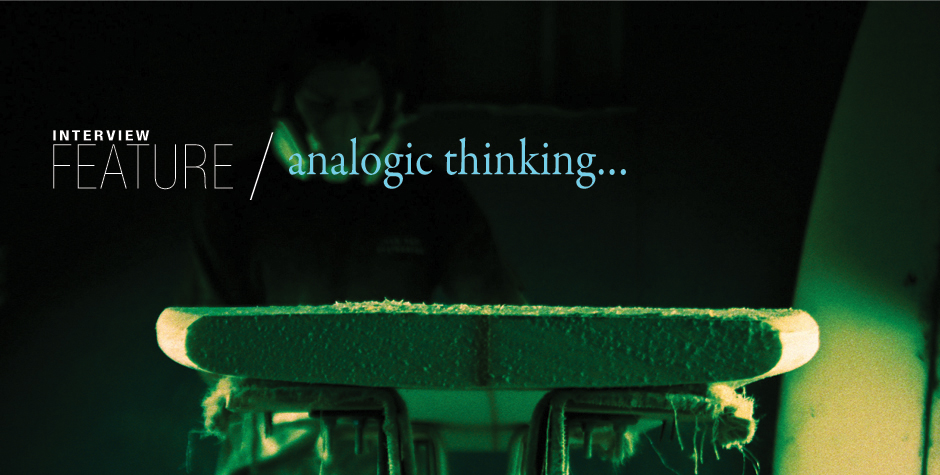
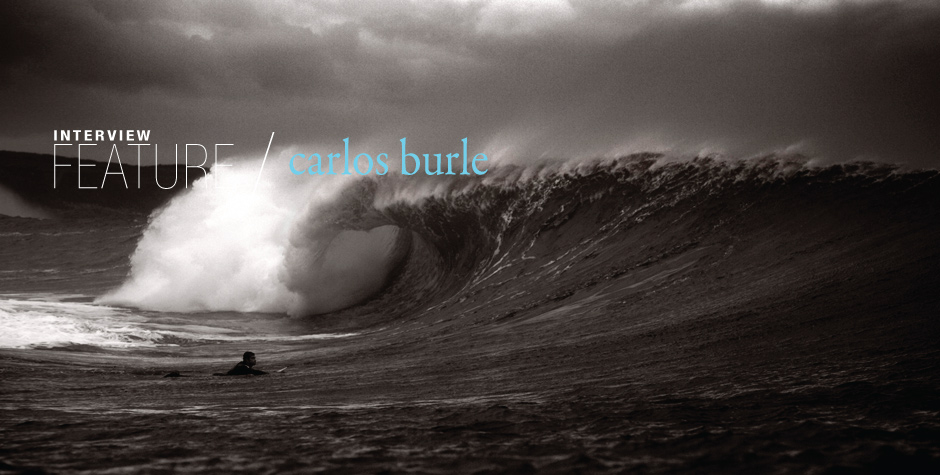
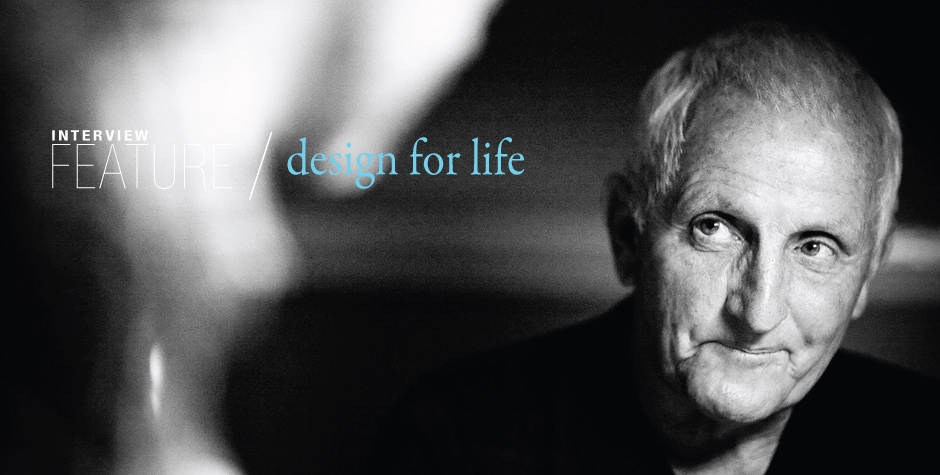
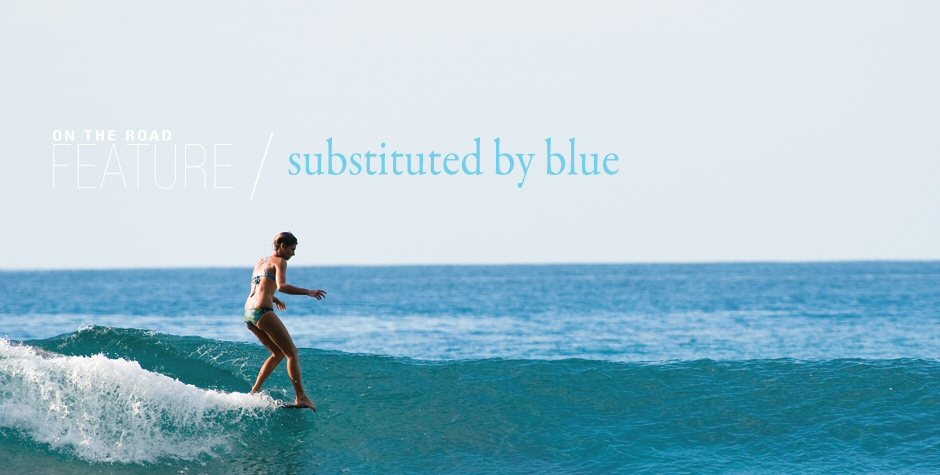
 Discuss
Discuss

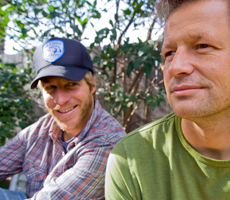


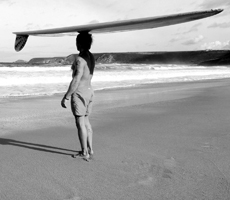















I just saw this film, and I am so brokenhearted and angry that I don’t know what to do.
1